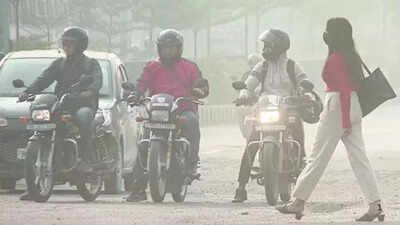ARTICLE AD BOX

With Delhi’s air quality plunging to ‘severe’ levels, the Commission for Air Quality Management (CAQM) has enforced Stage III restrictions of the Graded Response Action Plan (GRAP) across the National Capital Region.
The move comes after the city’s Air Quality Index (AQI) spiked sharply from 362 on Monday to 425 on Tuesday morning.Stage III of GRAP is triggered when the AQI falls between 401 and 450, marking one of the most stringent phases of the emergency plan. The measures under this stage aim to curb vehicular and industrial emissions, which are major contributors to the worsening smog in the capital.
Delhi GRAPIII Norms: What vehicles are allowed, what not
Under the new restrictions, entry of several diesel-powered vehicles into Delhi has been prohibited.
BS-IV diesel light motor vehicles (LMVs) and BS-III petrol four-wheelers are banned from operating in the city. Similarly, BS-IV diesel light commercial vehicles (LCVs) registered outside Delhi are not allowed entry unless they are transporting essential commodities or are linked to emergency services. BS-IV diesel medium goods vehicles (MGVs) that are not carrying essential goods are also barred from operating.
The order also extends to all BS-III and below commercial goods vehicles registered outside Delhi, even if they are transporting essential goods: these too are now banned from entering the capital. Additionally, non-destined goods vehicles are being diverted at Delhi’s borders to ease traffic and reduce emissions within city limits.
MG Windsor Pro EV Review: More Range, Tech, Safety | TOI Auto
However, essential and emergency services remain exempt. Inter-state buses running on electric, CNG, or BS-VI diesel fuel are permitted. Delhi-registered BS-IV diesel MGVs and LCVs carrying essential commodities are also allowed to operate. Specially adapted vehicles for persons with disabilities, government service vehicles, and those used by hospitals, utilities, sanitation departments, and law enforcement agencies are excluded from the ban.The CAQM has also directed authorities to intensify checks on vehicles violating pollution control norms and to ensure strict compliance at all border entry points.

 1 hour ago
4
1 hour ago
4








 English (US) ·
English (US) ·